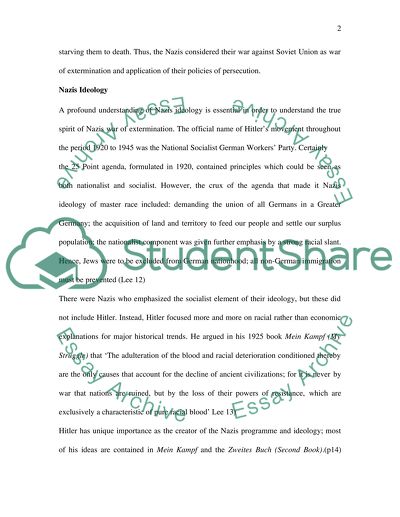Cite this document
(“The Nazis regarded the war against the Soviet Union as a 'war of Essay”, n.d.)
Retrieved from https://studentshare.org/environmental-studies/1419479-the-nazis-regarded-the-war-against-the-soviet
Retrieved from https://studentshare.org/environmental-studies/1419479-the-nazis-regarded-the-war-against-the-soviet
(The Nazis Regarded the War Against the Soviet Union As a 'War of Essay)
https://studentshare.org/environmental-studies/1419479-the-nazis-regarded-the-war-against-the-soviet.
https://studentshare.org/environmental-studies/1419479-the-nazis-regarded-the-war-against-the-soviet.
“The Nazis Regarded the War Against the Soviet Union As a 'War of Essay”, n.d. https://studentshare.org/environmental-studies/1419479-the-nazis-regarded-the-war-against-the-soviet.


